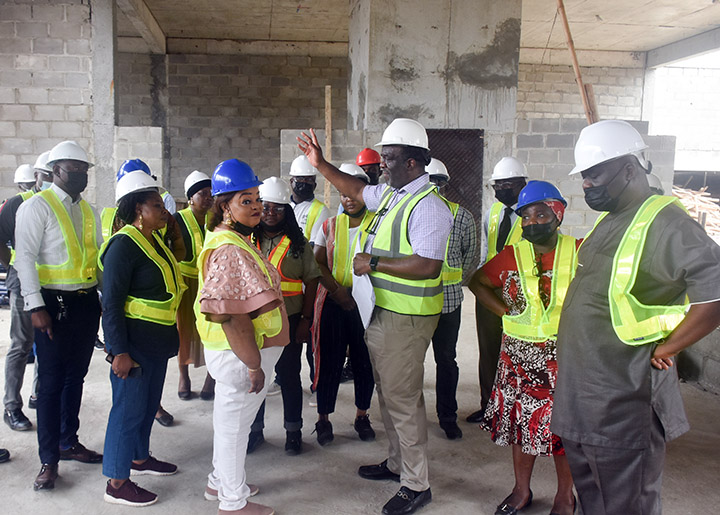Business
Power Institute Seeks Synergy To Promote Consumers’ Right

Director-General, National Power Training Institute (NAPTIN), Mr Ahmed Nagode,has urged more synergy among stakeholders in the power sector to promote the rights and obligations of consumers.
Nagode made the call at a one-day National Electricity Consumer Protection Education Awareness Forum in Abuja yesterday.
The event was organised by NAPTIN, in collaboration with the Association for Public Policy Analysis (APPA).
He said that the awareness programme was imperative as consumers’ right and protection was important.
According to him, consumers constitute big stakeholders in the Nigeria power sector.
“Consumers need to be aware of their civic rights and at the same time need to be aware of their civic responsibilities,’’ he said.
The NAPTIN boss said that stakeholders should give more attention in terms of training, with proper coordination to consumers’ right and protection.
“We are all consumers; if we are protecting consumers’ right and obligations we are protecting ourselves and also protecting and promoting our interest.
“In any country, consumer’s right is important, you need not surcharge the consumer, you need to give them their rights. They have civic rights and these are engrave in the laws of the land.
“ Consumers need to pay their bills as at when due but to whom much is given, much is expected. You must give them what will make it possible for them to exercise their rights, and this is what will make the system work. ‘’ he said.
Nagode, however, said that NAPTIN was ready to collaborate with other stakeholders in the power sector to carry out more training on consumer right.
Mr Princewill Okorie, the National President, APPA said that it organised the programme as the power sector was critical to development of the economy.
“We found out that implementation of section 80 and 81 of the Electricity Power Sector Reform Act that deal with electricity consumer protection and licensee performance standards are not well enforced.
“We observe unfair business practices against consumers and going further, we found out that consumers lack knowledge and information and are even scared to protect themselves.
“So, the training will equip the consumer with knowledge on the standards and procedures governing them, thereby, enhancing the relationship between them and Electricity Distribution Companies ’’.
Also, Mr Shittu Shaibu, Deputy Director, Consumers Affairs, Nigerian Electricity Regulatory Commission said that it had been working with all stakeholders to address the issue of consumer right.
Shaibu said that there was the need for more to be done to enlighten the consumer of his or her right and obligations.
“I can assure you that there are enough regulations, compliance and collaboration with Federal Competition and Consumer Protection Commission (FCCPC) as well as the National orientation Agency and others that are responsible for ensuring consumers are protected,’’ he said.
Also speaking, Mrs Mercy Ogwu, FCCPC Deputy Director, Consumer Education said that the consumer right provided a way for individuals to fight back against abusive business practices.
Ogwu said that awareness was key to consumers’ right, and that if consumers knew something existed to their benefits, they would demand for it and ensure they are not surcharged,
“This action will make the market place fairer for business transactions,’’ the deputy director noted.
She reiterated FCCPC’s committment to always support such programmes to increase consumer awareness, protection of consumers rights and ensure a fair playing ground in the market place.
Business
NCDMB, Dangote Refinery Unveil JTC On Deepening Local Content
Business
Food Security: NDDC Pays Counterpart Fund For LIFE-ND Project
Business
Replace Nipa Palms With Mangroove In Ogoni, Group Urges FG, HYPREP
-
Business3 days ago
CRG Partner JR Farms To Plant 30m Coffee Seedlings
-
Foods/Drinks3 days ago
What To Know About Your Menu
-

 Niger Delta3 days ago
Niger Delta3 days agoNDLEA Intercepts 584.171kg Hard Drugs In Bayelsa … Arrests 559 Suspects
-
Rivers3 days ago
Four Internet Fraudstars Get Different Jail Terms In PH
-
Business3 days ago
Food Security: NDDC Pays Counterpart Fund For LIFE-ND Project
-
Business3 days ago
PH Women Plan Alternative Stew, Shun Tomato High Prices
-
Sports3 days ago
Nigerian Athletes Serving Doping Bans
-

 Niger Delta3 days ago
Niger Delta3 days agoEx-IYC President Lampoons Atiku’s Presidential Ambition … Declares It Negative Impact On N’Delta

